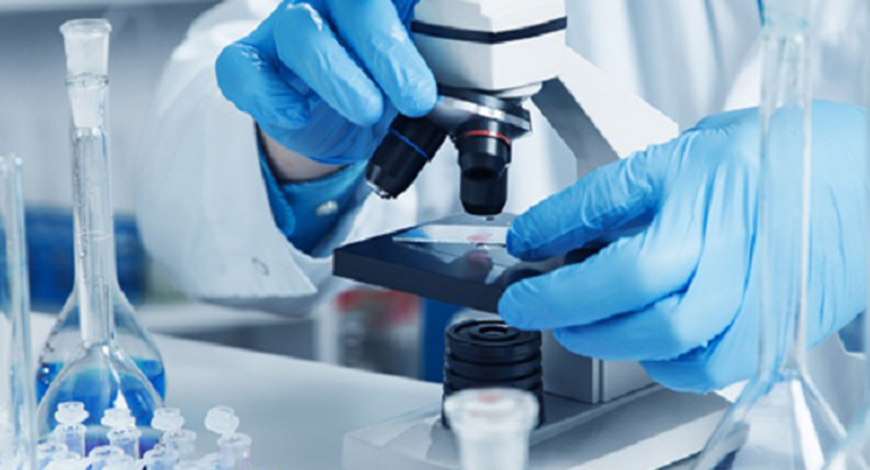Headlines of The Day
Diagnostic industry looks to leverage Covid infra for non-Covid tests

Diagnostic laboratory (lab) chains had created capacities for molecular biology tests in the past two years to cater to a huge surge in demand for Covid testing. Two years and three Covid-19 waves later, lab chains are now working out strategies to utilise these capacities created.
Covid revenues are roughly 10 per cent of large lab chains’ turnovers now, claims the industry. At its peak, the contribution from Covid went up to 20-25 per cent. However, several smaller and regional players who sprung up during the pandemic have a far larger pie from Covid testing, and would now find it difficult to sustain with Covid receding.
The key strategy is to use the reverse transcription-polymerase chain reaction (RT-PCR)-equipped or molecular labs created for conducting other tests — hepatitis B and C, HIV, tuberculosis (TB), dengue, and chikungunya.
Anand K, chief executive officer, SRL Diagnostics, says there are some 70-80 molecular diagnostic tests, of which hepatitis and TB are in high volume. He adds that prior to the pandemic, they would do molecular testing at two reference labs — in Mumbai and Delhi.
“Now we have created a network of 25 labs where we can do these tests. Earlier, we would fly a sample from Guwahati to get the test done. Now as we can do the tests closer home, we expect the volumes for non-Covid molecular tests to go up,” explains Anand.
Anand also highlights that the expansion and investments were primarily in equipment, which can be removed or redeployed. SRL had created infrastructure for molecular tests within their existing labs.
A senior executive of a Delhi-based diagnostic chain said investments for setting up such infrastructure is not more than Rs 40-50 lakh for large lab chains. “That money has already been recovered through Covid testing,” he says.
Metropolis Healthcare had significant presence in molecular testing even before the pandemic. A spokesperson for the company claimed that Metropolis enjoys maximum volume for HIV testing via PCR, the same technology used for Covid.
“Therefore, we already had good capacity that we had built for these machines, which was also used for Covid tests. Considering we keep adding new tests to our already existing menu of 4,000 tests, we are not worried about the excess capacities that have been built because of Covid since we have various other tests to use the same machines,” the spokesperson added.
GSK Velu, chairman and managing director, Neuberg Diagnostics, however, admits that the volume of non-Covid molecular tests will not match that of Covid, and therefore, there would be some drain on margins.
“We are not listed, no investors on board, so we are comfortable with the business decisions we take. We are waiting for the market forces to correct,” says Velu.
Velu is betting on demand for preventive health care and advanced diagnostic testing to aid organic growth of diagnostic labs. “Preventive check-ups were around 10 per cent and advanced diagnostics around 30 per cent of industry turnover. During Covid-19, the share of preventive tests went down to nil,” he adds.
The players expect non-Covid revenue for the industry to clock 10 per cent growth in 2021-22. “There is still some time before one understands which way the wind is blowing. If there is another wave, it changes the dynamics,” says the executive from a Delhi-based chain.
As for manpower, he adds that large lab chains employ a few thousand people, and the natural attrition rate is 15 per cent. “So, we are losing a few hundred people every year. It’s not difficult to redeploy this excess manpower created for Covid-19 in these roles,” he says.
A spokesperson for Metropolis says, “Over the next three years, we will be investing in expanding our presence in tier 2 and 3 cities and have plans to add 90 more labs and 1,800 service collection centres in 100-150 more cities in India. We have already started deepening our presence in multiple cities across the country and are looking forward to providing health care services to close to 220 cities through different patient service networks.”
SRL has invested Rs 450 crore in the past two years, and plans to invest Rs 350 crore in the coming year (2022-23) to expand its presence.
In a recent report, ICICI Securities has noted that it expects diagnostic companies to observe mid-teens growth in base (non-Covid) business in calendar year 2022 (CY22).
“Low base of non-Covid portfolio of H1CY21 would likely help in registering very strong growth in H1CY22, while Covid-19 related revenues would contract sharply. We also expect a faster shift from unorganised to organised players in the current environment as larger brands are associated with safety and hygiene and have an efficient home collection process, which has seen increased traction, as well as likely consolidation in the industry,” the analysts noted. Business Standard












